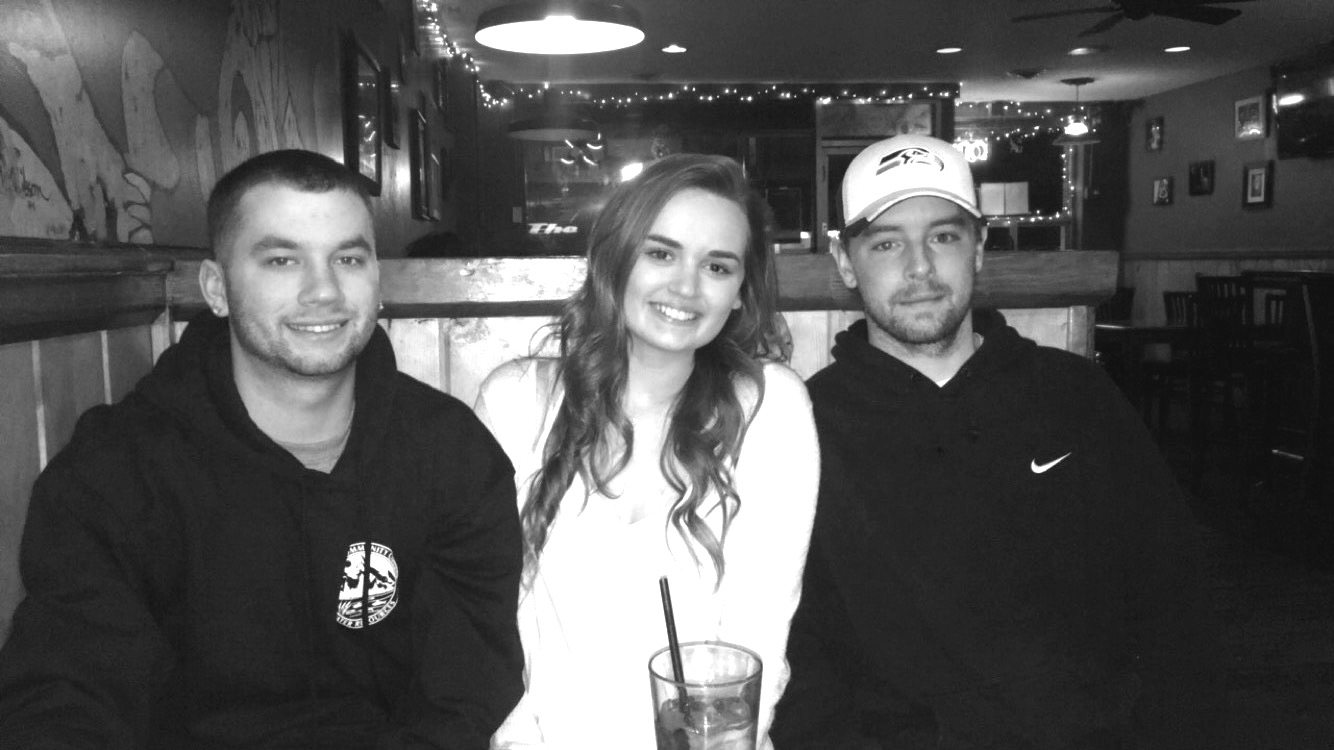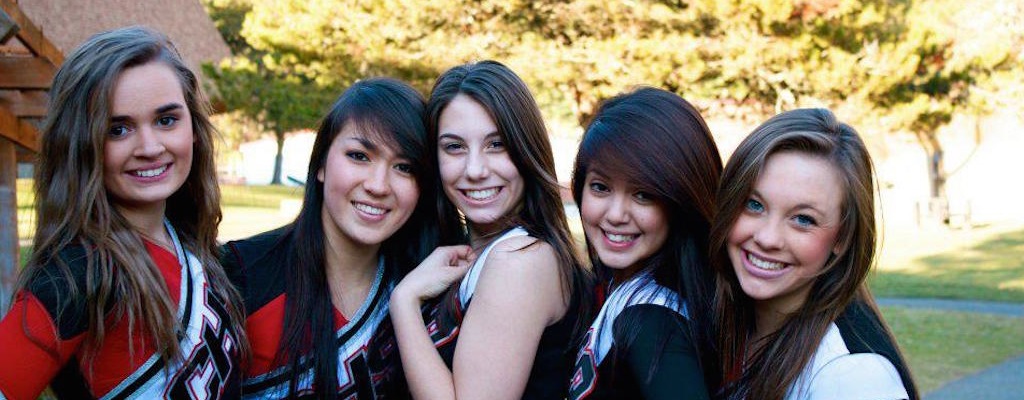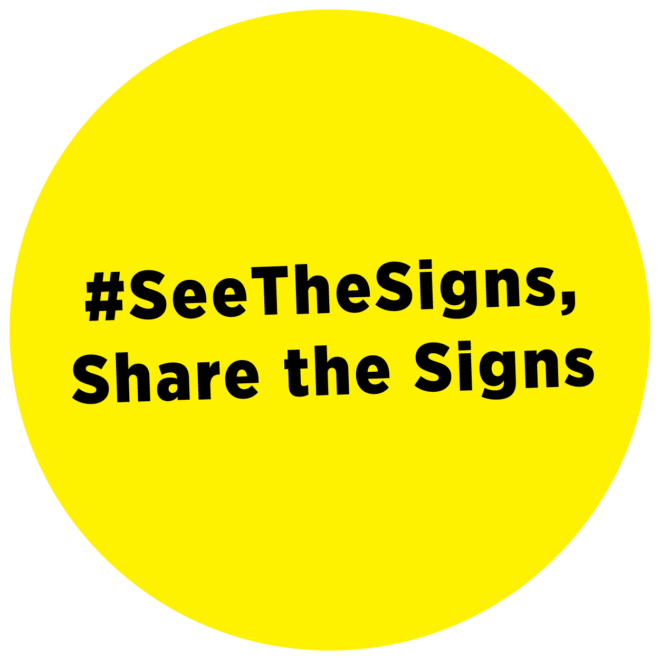Mistaken for an Anorexic—My Type 1 Diagnosis
Editor’s Note: Get involved in Beyond Type 1’s #SeeTheSigns of diabetes campaign! Share your signs to help save lives, request #SeeTheSigns posters to share in your community, get sharable graphics for social media and more! Learn more here.
Adapting to those awkward teenage years is hard enough, but trying to adapt and experience unknown challenging changes to your body makes it extra scary. I was diagnosed with type 1 diabetes at the age of 12, and it was a roller coaster to my diagnosis.
I had always been a really chubby kid, and growing up with two older brothers to remind you that you’re a “chubby bunny” made losing my baby fat a little more exciting. The weight started to come off during my seventh grade year, and it was well noticed. As I had excitement, others had concern. I remember rumors rolling around about me: first I was too fat and now people were starting to say I was too skinny. Next, it was rumored that I was battling anorexia, and it was embarrassing. Staff members started pulling me aside making sure I was okay, healthy and eating, because they had noticed my weight loss too. When I was pulled aside, I was not bothered by it at first, then I started to become a little more offended as it continued. When I was pulled out of a class and placed in a another room alone to watch a documentary on anorexia, I couldn’t believe it.
“What did you eat for dinner?” became a popular question. Participating in sports also became an issue. I was participating in basketball and my coaches also developed concern and talked to me after practice. It was just another person I had to ensure that I was eating. It was to a point I had to sit games out, because they were that concerned. They had turned my weight loss, something I found harmless and part of growing up, into something miserable. Once other students were making sure I was eating for staff members, it was my breaking point. This became an issue where I no longer wanted to go to school. I couldn’t understand why people weren’t believing me.

My mom took me to the doctor to receive a note to let the school know to stop bothering me. Though my mom also started to be concerned when my weight reached a level of too skinny. This doctor’s appointment was also supposed to put her at ease, but the doctor asked me to return the following week for another check-up. At the next appointment, I had lost more weight in just a week, so my blood was taken, and it was discovered I had type 1 diabetes. I will never forget the moment we received that phone call or the look on my mom’s face. My blood sugar was well over 800. The doctors were surprised I was even alert.
Looking back, I now understand how unhealthy I was starting to look and that people were just looking out for me. I was 12 years old and only 70 pounds the day of my diagnoses. I had many signs of diabetes but just never paid much attention to it. I had crazy mood swings and was constantly tired. Apart from drinking a gallon of milk by myself, I continued to lose weight. I remember once waking up on my bedroom floor confused on how I even got there and if I really just fell asleep. Maybe I started to become reluctant to believe I actually had something wrong with me. I didn’t realize how sick I felt until I left the hospital feeling so much better. I remember the day I was leaving the hospital and my pants fit a little snug on me; that to me was a little accomplishment and I was so happy.
After my diagnosis, I was embarrassed to return to school. I was in the hospital for almost a week, but waited about two extra weeks to go back. The insulin shots and the fear of low blood sugar wasn’t something I wanted to experience in public. I took this diagnosis pretty hard—I cried every night in the hospital, (only when my mom was sleeping though). I couldn’t handle seeing her cry for me. Once returning to school, it was not as bad as I expected; my mom only being a phone call away was reassuring. I received apologies from staff members and all my teachers were more than understanding that this was something new. Classmates I think may have even been a little envious that the “no food in class” rule no longer applied to me.

What really helped me with my anxiety returning to school were my friends. They were so interested in learning what exactly my new lifestyle entailed. They learned how I did shots, listened to my glucagon demonstration and ultimately figured out when it was time to run for the juice box. My family also showed me tremendous support. My Mom was doing everything she could to make sure I was in good blood sugar range, she wrote everything down, counted every single carb and she checked my blood sugar at 2 a.m., never waking me up. She was my #1. My brothers also had my back. When my eye sight became too poor to read my textbooks, they would read to me and have me answer the questions. My brothers would also attend doctor appointments and conventions just so they could learn what to do. As a family we learned that diabetes affects us as an entire family.
What I have learned from my journey is that once you’ve accepted your diagnosis, it gets so much easier. Yes, easier said than done, but I promise! It took me until high school to completely accept my new lifestyle, and that’s because my friends never treated me differently. Participating in cheerleading for all fours years of high school was a huge confidence booster as well. People who love you will not see that extra step you take in order to eat or a juice box run as an issue. It was to a point where no one made me feel different. When I would receive ignorant comments the odd time, I was reminded by my support system how strong I am. Ultimately coping with being different meant to no longer hide my diabetes. I love telling people my story; I love that feeling of educating people about type 1 diabetes (T1D), because so many people are misinformed. When I discovered Beyond Type 1, I saw it as a huge platform to share my story and hope it helps others who might be faced with a recent diagnosis or have a loved one who is. I am now 21 years old and will not allow my diabetes to stop me from experiencing life.






